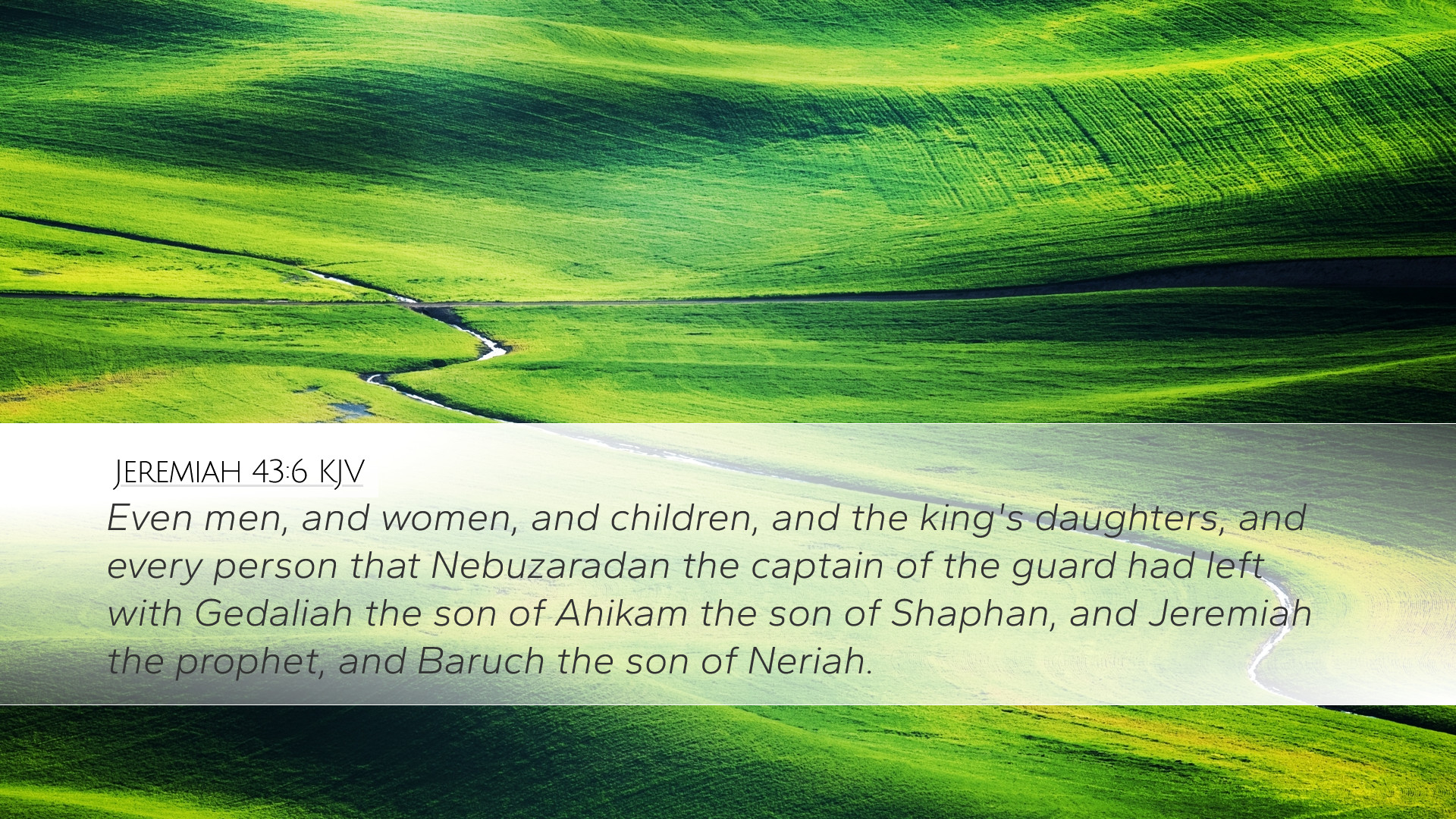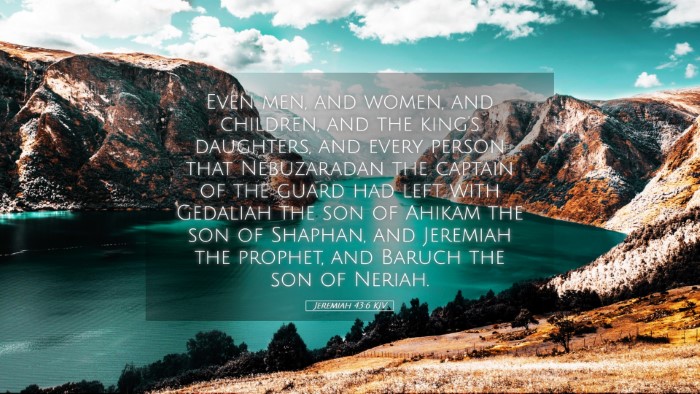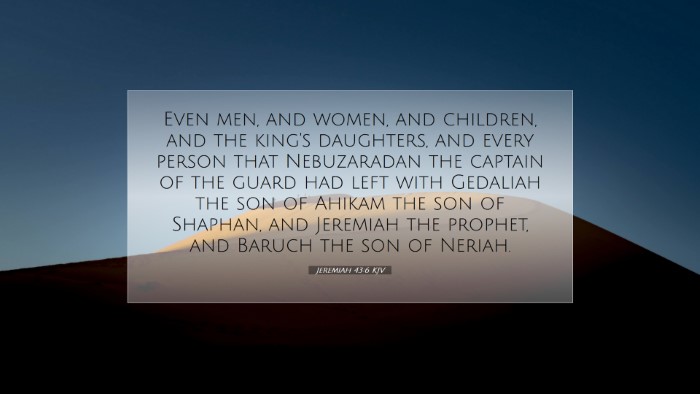Commentary on Jeremiah 43:6
Verse Context: Jeremiah 43:6 states, "Even men, and women, and children, and the king's daughters, and every person that Nebuzaradan the captain of the guard had left with Gedaliah the son of Ahikam the son of Shaphan, and Jeremiah the prophet, and Baruch the son of Neriah." This verse occurs in a pivotal moment in the narrative of Jeremiah, detailing the aftermath of the Babylonian destruction of Jerusalem and the choices faced by the remnants of Judea.
Understanding the Historical Context
In the aftermath of Jerusalem's fall, the people of Judah must decide their future. Some choose to remain in Judah under Gedaliah's leadership, while others, motivated by fear and uncertainty, decide to flee to Egypt. This verse highlights the breadth of those affected by the aftermath, emphasizing that not only prominent individuals but every individual feels the consequences.
Insights from Matthew Henry
Matthew Henry provides a profound perspective on this passage, noting that the tumult and fear after Jerusalem's destruction left people vulnerable to despair and poor decision-making. He emphasizes the significance of the king's daughters being mentioned, suggesting their importance in the lineage and future of Judah. Henry points out that their inclusion signifies the commitment to survival, regardless of the looming threat from Babylon.
Divine Providence
Henry stresses God's providential care, arguing that even in times of judgment, God leaves remnants to maintain the covenant. The folks detailed in this verse are not mere captives; they symbolize hope amidst despair. He underscores that God's faithfulness cannot be thwarted, regardless of human frailty.
Insights from Albert Barnes
Albert Barnes offers a detailed explication of the sociopolitical implications of this passage. He notes that Nebuzaradan's decision to spare certain individuals indicates a strategic move to gain influence over Judah by allowing a governance structure to exist under Gedaliah. Barnes highlights that this decision was fraught with danger, as those left behind were constantly under the threat of Babylonian influence and the possibility of rebellion.
Symbolism of the Captives
Barnes discusses how the captives represented both a physical and spiritual remnant. Their presence in Egypt was not merely a geographical relocation but a deep spiritual struggle. The flight to Egypt illustrated a lack of faith in God's promises, as they turned to the uncertainty of an idolatrous nation rather than embracing the call to remain faithful to Yahweh.
Insights from Adam Clarke
Adam Clarke's commentary delves into the personal stories of those named in the verse, particularly focusing on Jeremiah and Baruch. Clarke argues that both men played crucial roles in the preservation and dissemination of prophetic literature during this tumultuous period. He elucidates their potential feelings of abandonment, yet their steadfastness highlights their commitment to God's direction.
Theological Implications
Clarke articulates the theological significance of God’s ongoing relationship with His people. The mention of individuals, especially the women and children, suggests that God's covenant remains intact and is not limited to a specific demographic or class within society. Instead, it encapsulates all who seek to follow and trust in Him, hinting at the inclusive nature of God's mercy.
Application for Pastors and Theologians
This passage's insights prompt reflection on how churches today respond to crisis. The challenges faced in Jeremiah's time mirror contemporary struggles in faith communities—navigating remnants of despair while holding on to promises of hope. Pastors are urged to draw parallels to their congregations, encouraging them to find strength and resilience in God’s word, just as those remnants did.
Encouragement for Faithfulness
As leaders, it is crucial to promote a message of hope that draws from historical contexts such as this one. Encouraging congregations to remember that the presence of God’s servants amid uncertainty—like Jeremiah and Baruch—can inspire faithfulness in the face of adversity. With prayer and support, communities can experience transformative hope, mirroring God's eternal faithfulness.
Conclusion
Jeremiah 43:6 serves as a clarion call to remember the importance of community, the choices we make in times of crisis, and God's enduring faithfulness. Each character in this narrative represents a thread in God's vast tapestry of redemption. By engaging with historical insights and theological implications of this verse, scholars and practitioners alike can glean wisdom and understanding that inspire faithfulness amidst uncertainty.


